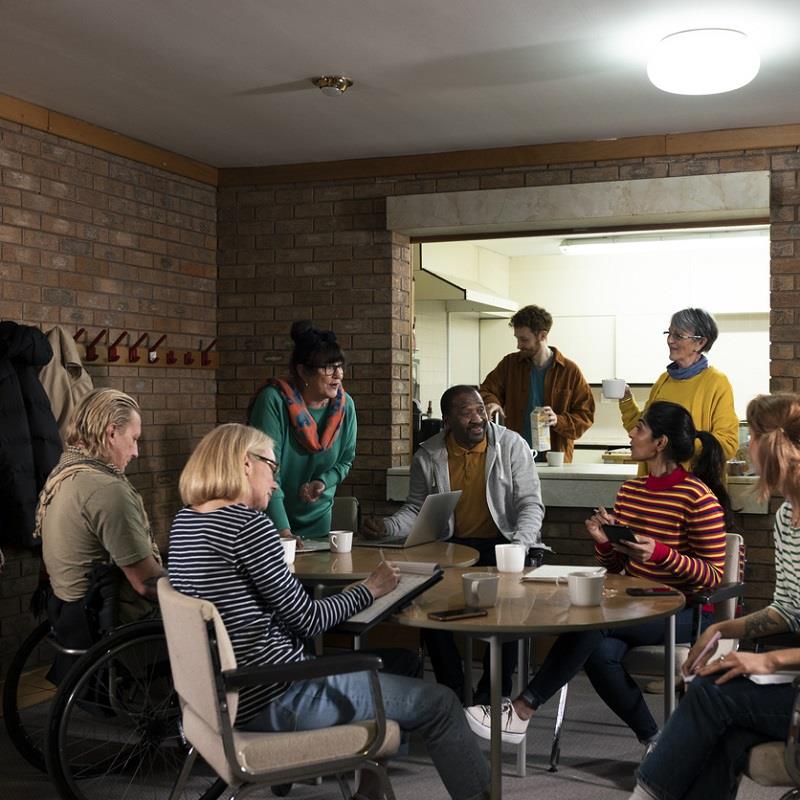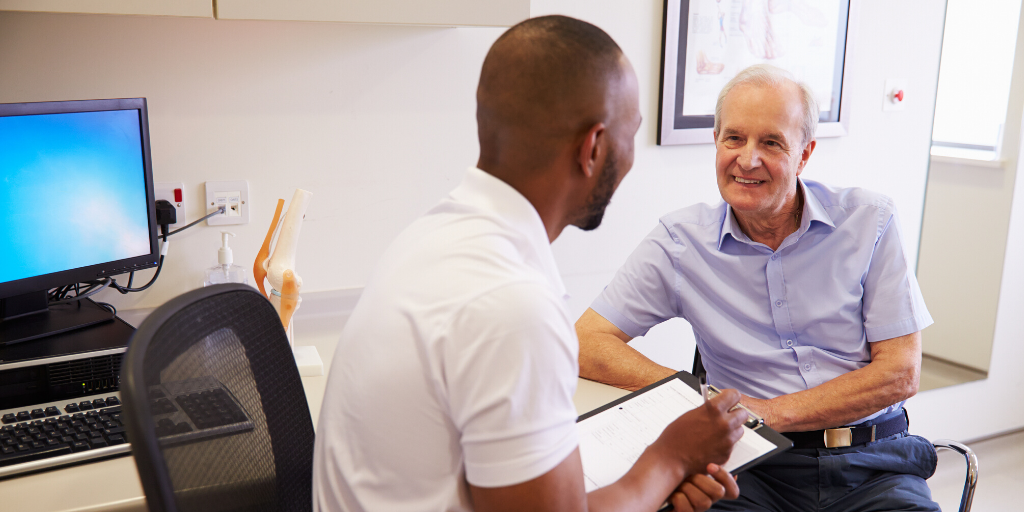
Opportunities for getting involved
Make a difference to future health and care research.
Find opportunities to get involved in NHS, public health and social care research.

Everyone benefits from research. This not only includes scientific research in laboratories, but also research into health and social care. Research provides evidence about what works best. Patients, carers, people who use social care services and health and social care professionals all use this evidence to make decisions about treatments and care.
When the public gets involved in research, they work alongside researchers to help shape:
Being involved is not the same as taking part in research. It's not about taking part in a trial or study to test a new treatment or care option. It’s about being a member of the research team that works together to design and run the study.
We define public involvement in research as research being carried out ‘with’ or ‘by’ members of the public rather than ‘to’, ‘about’ or ‘for’ them.
When we use the term ‘public’, we are including:
By getting involved in research, you can help make research more relevant and useful to patients, carers and the public. By working with researchers, you will improve research and make a difference to the way health and social care is provided in the future.

Make a difference to future health and care research.
Find opportunities to get involved in NHS, public health and social care research.

Why and how to get involved in research?
Visit this guide to find out how to contribute to research in a way that works for you.

Are you passionate about getting more people involved in research?
Become a Research Champion and help develop better care and treatment for everyone.
By getting involved in research, you can help make research more relevant and useful to patients, carers and the public. By working with researchers, you will improve research and make a difference to the way health and social care is provided in the future.
Your knowledge from having experienced your own care, or the care of others, is of great value to researchers. Researchers may have textbook knowledge about different conditions but unless they have also lived through it, there will be gaps in their understanding.
You won’t be expected to have technical knowledge of how research works. The knowledge you have as a patient, carer or member of the public is what’s unique about your contribution.
“Your role is to be a critical friend to researchers. You will see the research from your perspective and advise researchers on how their research could be better. Sometimes this can just seem like common sense to you, but it will be valuable feedback for the researchers.” Amander, Norwich
You can make a difference at any and every stage of research. Your contributions can help shape the thinking behind the planning and delivery of a research project. In addition, your voice can influence people beyond the research team, including the people who take part in the research and the people who use the results. Sometimes the involvement of patients, carers and members of the public determines whether a project gets funded, whether it runs successfully and whether the results change practice.
In the case studies below, you can read about examples of research where patients and the public have made a big difference to the project:
Most researchers are aware of the benefits of involvement and therefore want to do it well. They want to learn from their conversations with patients, carers and the public. They will often make changes to their ideas and plans as a result.
Researchers have an added incentive to involve people in their work. When they apply for funding, they are often asked how they have involved patients and the public in developing their proposal, and how they will involve them in carrying out the research. The UK Standards for Public Involvement provide a framework for researchers, showing them what good public involvement looks like.
Access People in Research, a list of opportunities for members of the public to get involved in research. You can sign up to receive email alerts when a new opportunity is added that matches your interests.
Joining a committee is also an opportunity to be involved in research and learn more about the process. Our different committees decide which research projects to fund and priorities. Explore more about joining a committee.
People who get involved in research have different reasons for wanting to do it. Some people have had a difficult experience and appreciate being able to do something positive with it. Others have had very good experiences, and see their involvement as an opportunity to ‘give something back’.
For most people, it’s about wanting to make a difference – so that in the future, care will be better for the people who come after them.
“I still have my condition, but my experiences and other people’s experiences can help to change things. I know what we do makes a difference, maybe not to my health, but to someone else’s, to future generations. To be able to be part of that journey by being involved is an amazing thing to do.” Diana, PenARC Peninsula Public Engagement Group member, Exeter

Learn more about getting involved in research, what it might involve and our guidance on payment. Take a look at our resources:

Patients, carers and members of the public can get involved in NIHR research in many ways. You can get involved in NIHR research by:

There are also plenty of opportunities for public involvement in research beyond the NIHR. Discover more by: